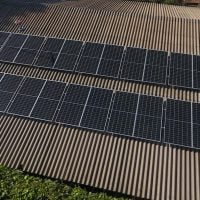Deadline: 11-May-23
UK registered organisations can apply for a share of up to £2 million. This is for business case feasibility studies to support scale up of the UK’s zero emission automotive supply chain.
The Automotive Transformation Fund is delivered by the Advanced Propulsion Centre (APC) and partners, Innovate UK and the Department for Business and Trade. The Department for Business and Trade has taken responsibility for some of the functions of the former Department for Business, Energy and Industrial Strategy (BEIS) and Department for International Trade (DIT). It supports the industrialisation at scale of a high-value electrified automotive supply chain in the UK.
The aim of this competition is to fund feasibility studies which must produce a decision-ready business case. This is in preparation for projects which will develop large scale manufacturing facilities in the UK.
They are seeking proposals from single organisations or consortiums for business case feasibility studies up to the grant value of £350,000.
The resulting projects must support the UK automotive industry in:
- increasing business confidence in making large scale manufacturing investments
- building electrified vehicle supply chains
Specific Themes
- Your business case must prioritise the scale up in areas mentioned in the Automotive Transformation Fund Strategy for an electrified supply chain.
- Your project must prioritise scale up and can focus on but not be limited to:
- Batteries, including cells and gigafactories
- cathode materials and manufacturing
- anode materials and manufacturing
- electrolyte
- cell assembly components, including separators
- module to pack
- cell to pack
- Electric motors and drives
- magnet materials and manufacturing
- electrical steel materials and manufacturing
- electrical machine assembly
- drive line components
- assembly and test into complete drive unit
- Power electronics
- wide band gap semi-conductors
- sensors
- passives
- power electronics assembly
- Fuel cells
- membrane electrode assembly (MEA)
- fuel cell stack assembly
- storage tanks
- Recycling
- batteries
- electric motors and drives
- power electronics and fuel cells, for example where there is a move towards circular economy, particularly for critical materials
- Batteries, including cells and gigafactories
- Sectors in scope can include the supply chain for on and off-road vehicles, agriculture, heavy duty and mining.
Funding Information
- Your project’s total grant funding request must be between £100,000 and £350,000.
- Your project must:
- have a grant funding request between £100,000 and £350,000
- provide a detailed feasibility study and business case, to include reasons to aid future investment
- start by 1 November 2023
- last between 6 and 9 months
- carry out all of its project work in the UK
- intend to exploit the results from or in the UK.
Eligibility Criteria
- To lead a project or work alone your organisation must:
- be a UK registered business of any size
- request grant funding
- carry out its project work in the UK
- intend to exploit the results from or in the UK
- Project Team
- To collaborate with the lead, your organisation must be one of the following UK registered:
- business of any size
- academic institution
- charity
- not for profit
- public sector organisation
- research and technology organisation (RTO)
- To collaborate with the lead, your organisation must be one of the following UK registered:
- Each partner organisation must be invited into the Innovation Funding Service by the lead to collaborate on a project. Once accepted, partners will be asked to login or to create an account and enter their own project costs into the Innovation Funding Service.
- To be an eligible collaboration, the lead and at least one other organisation must apply for funding when entering their costs into the application.
Ineligible
- They are not funding projects that are:
- not aligned with the aims of the Automotive Transformation Fund
- not of sustained benefit to the automotive sector primarily
- centred on technologies or processes which are too early stage to scale at pace
- focussed primarily on fossil-fuelled internal combustion technology
- focussed primarily on the use of digital or data technologies
- centred on low carbon fuels for combustion engines
- focused on the production of hydrogen
- centred around off-vehicle charging infrastructure
- focussed on a micromobility application
- focused on vehicle level production
- They cannot fund projects that are:
- dependent on export performance, for example giving a subsidy to a baker on the condition that it exports a certain quantity of bread to another country
- dependent on domestic inputs usage, for example giving a subsidy to a baker on the condition that it uses 50% UK flour in their product.
For more information, visit Innovate UK.









































